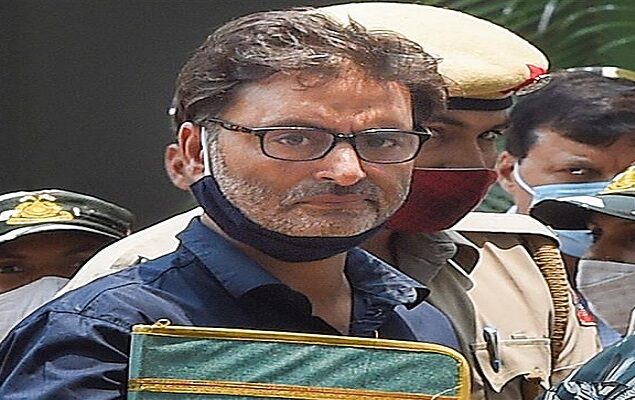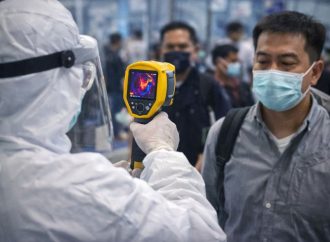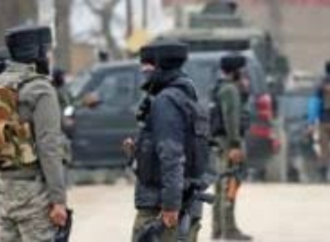The Supreme Court of India rejected the request to shift Kashmiri separatist leader Yasin Malik’s trial from Jammu to Delhi. This ruling pertains to the 1989 murder of four Indian Air Force (IAF) personnel. The court also ordered that Malik participate in the cross-examination via video conferencing from Tihar Jail, where he is currently incarcerated.
The Supreme Court of India rejected the request to shift Kashmiri separatist leader Yasin Malik’s trial from Jammu to Delhi. This ruling pertains to the 1989 murder of four Indian Air Force (IAF) personnel. The court also ordered that Malik participate in the cross-examination via video conferencing from Tihar Jail, where he is currently incarcerated.
Malik Rejects Terrorism Allegations
Malik appeared before the court through video link from Tihar Jail. He denied accusations of being a terrorist, claiming instead that he is a politician. He stated that multiple Indian governments, including those led by different Prime Ministers, have treated him as a political figure, not a militant.
Malik responded to references by Solicitor General Tushar Mehta, who had cited media reports showing Malik with terrorist Hafiz Saeed. Malik contended that these claims misrepresented his political identity. He also pointed out that his organization had never been labeled as a terrorist group under the Unlawful Activities (Prevention) Act (UAPA).
Revival of Old Cases and Ceasefire Agreement
Malik questioned why old cases against him were suddenly being revived. He cited his involvement in a 1994 ceasefire agreement. He noted that many cases against him had been dropped after this agreement. Malik pointed out the contradiction in the government’s actions, given the historical context of ceasefire agreements with different administrations.
Despite his arguments, the Supreme Court focused only on the procedural aspect of the case. The court maintained that the primary issue was whether Malik should cross-examine witnesses in person or via video conferencing from jail.
Video Conferencing for Cross-Examination
Malik’s request to file an affidavit was rejected by the Bench, which considered his verbal submissions enough. The court also asked if he wanted to appoint a lawyer, but Malik opted to represent himself.
This ruling followed a petition from the Central Bureau of Investigation (CBI), which had challenged a Jammu court’s decision for Malik’s physical appearance in two crucial cases: the 1989 IAF personnel murders and the 1989 abduction of Rubaiya Sayeed, the daughter of former Jammu and Kashmir Chief Minister Mufti Mohammad Sayeed.
CBI’s Concern and Court’s Stance
The CBI raised concerns over the logistics and safety of transporting Malik to Jammu. Solicitor General Tushar Mehta emphasized the uniqueness of Malik’s case, arguing against the application of standard trial procedures.
The Supreme Court had previously noted that notorious figures like Ajmal Kasab, responsible for the 26/11 Mumbai terror attacks, had received fair trials in India. In November 2024, the court proposed setting up a court within the jail for Malik’s cross-examination, but this suggestion was not followed.
Conclusion
The Supreme Court’s ruling emphasizes the balance between legal proceedings and security concerns in sensitive cases. With video conferencing in place for cross-examination, the trial of Yasin Malik continues, maintaining the integrity of the judicial process.






















Leave a Comment
Your email address will not be published. Required fields are marked with *